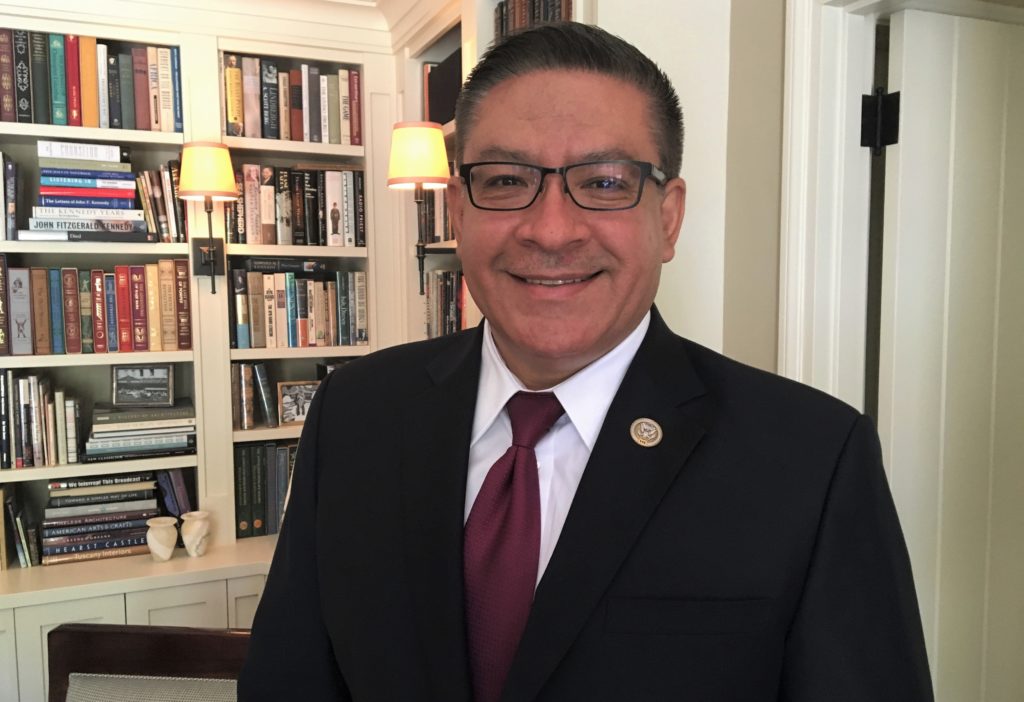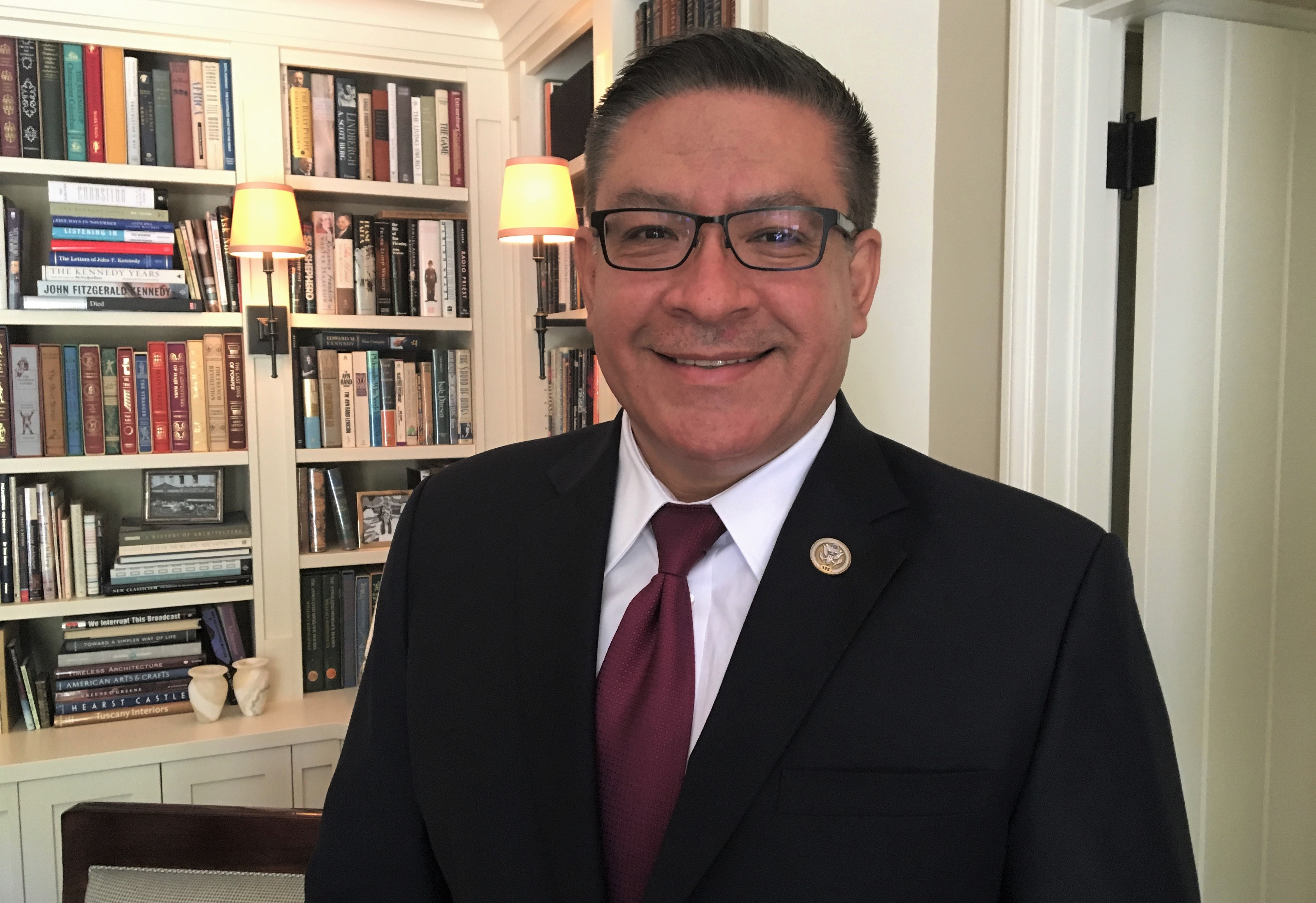In the final part of my conversation with Representative Salud Carbajal (D-CA-24) from July 29, we discuss principles, money in politics and avoiding partisan traps.

Lichtman: Here’s one thing that frustrates many voters, me included: political decision-making appears to be calculated toward getting re-elected where appealing to the base of supporters becomes the overriding priority. How do stay true to your principles as well as the people you represent?
Carbajal: Well, first and foremost, I have one guiding principle, and that is I’m going to do what I think is best, because at the end of the day, as much as I want to get re-elected, that comes secondary to doing what I think is right.
Jim, I’m at a point in my life — and I say this with humility — I don’t have to be in Congress. If I’m not in Congress, it’s not the end of my life.
Being in Congress is important. I love the important work that Congress can do, and I want to make a contribution. I want to make people’s lives better. I want to work with my colleagues to do so, but getting re-elected isn’t the number one priority for me. Doing the best that I can, that’s the number one priority for me. If that leads me to not being re-elected, I’m fine with that.
Having said that, I would like to continue my work there. So, I default to fundraising like any other member of Congress who is not independently wealthy.
This is your democracy. It’s my democracy. [Representatives are elected] every two years. Our forefathers wanted it that way, because it creates a stability and instability at the same time.
You have two jobs. One is to raise the resources to get re-elected, and the other is to do your job. You spend 25-30 percent of your time raising money, when otherwise, you could be meeting with your colleagues, discussing, strategizing. It’s ridiculous. It’s annoying. It’s the worst part of my job. I wish I didn’t have to raise the money. I wish there was campaign finance reform! I would be open to any public system, or our Supreme Court modifying Citizens United so that we have less money in politics.
But it’s a legitimate question to ask: How do you stay true to your service when you’re constantly raising money; and how do you stay true to your objective and not be influenced by money?
[In looking at a piece of legislation] I ask myself: Is this right? Is this falling into the trap of partisan politics, or silly politics? Or is it really trying to improve people’s lives. I’ll give you an example.We all heard of the unfortunate crime that happened in San Francisco which is a sanctuary city. An undocumented person, with some criminal history kept coming back to this country and ended up murdering a woman.
As tragic as it was, I don’t think it characterizes the immigrant community, but it led us to some concerns and laws about how we deal with undocumented individuals who have a criminal history. We should put laws in place that are more aggressive in dealing with those individuals, but my colleagues in the majority party put forth legislation recently so they could use it against us [Democrats] in the future.
Now, if it was all about politics, I would have voted for it. Let me tell you what it was and why I voted against it.
They put forth a law saying that anyone who has a criminal history, and apprehended should be criminalized, put in jail or sent back. I agree with that.
What they didn’t tell you is that they included three other categories: people seeking asylum are now criminalized; people that are victims of sex-trafficking with no criminal history are now criminalized; and a parent or two who comes to this country multiple times to make a better way of life. They have no criminal history. They are now criminalized, like the real criminals that we’re trying to deal with. They conflated the two.
The legislation conflated real criminals with people who have no criminal history.
In the future, you’re going to see an ad against me saying that I didn’t support dealing with these criminals, like the undocumented individual who committed this atrocious murder in San Francisco, but they’re not going to tell you about the other parts of that legislation.
The political thing would have been to vote for it. The harder thing is to endure the wrath of politics and B.S. to protect the innocent. There is a broken immigration system. That’s what we should be reforming.
Jim, I’m an immigrant to this country. I came in through the right channels, when the immigration system worked. My father applied. We put in our application. The system worked.
Has this bill been put forth?
Yes, and passed the House.
The Senate still has to come up with their version and then it goes to the White House, assuming there’s an appetite for it. There may not be. But the bottomline is, there’s already a record of how I voted.
I only share that with you because it deals with ethics. It deals with morality. And you asked me, “How do I reconcile money, re-election and principle when you wake up in the morning?”
And I wake up and say, “If my M.O. is to get re-elected, then it’s very easy. Then it comes down to, ‘How do I make the most people happy all the time?’ even when it’s not morally right.” And that happens a lot with special interests on all kinds of legislation.
At the end of the day, I want to go to bed saying, “I did what’s right.” And if I don’t get re-elected, so be it.
Any final comments?
There’s another group called, The Climate Solutions Caucus, also made up of Democrats and Republicans; a new group, as well, committed to finding common ground on just climate change and environmental issues, because that’s become an issue that’s exploded, and I’m part of that group, as well.
We’re trying to find ways to connect. For instance, I have a bill coming forward that deals with ocean protection issues. Congressman [Carlos] Curbelo (R-FL-26) and myself are signing onto it. He’s the one that started The Climate Solutions Caucus. He’s from Florida. So, he and I have a bill. I just dropped it yesterday.
I’m proud to tell you that 50 percent of the bills I have introduced, are bipartisan, and overall, 52 percent of all the bills that I’ve signed onto, are bipartisan, and we’re talking about over 165-170 bills.
Comments











